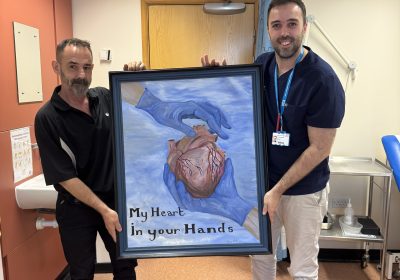Researchers at the university are planning a study about the diagnosis of cancer following presentation in an emergency department.
Most cancers are diagnosed in patients who have been seen by a GP and referred to hospital for investigation. However, some patients present as an emergency with “alarm” symptoms and are found to have cancer.
Those who present as an emergency often have advanced cancer and have fewer treatment options and worse outcomes than people who are diagnosed with cancer through non-emergency routes. Understanding more about the problem is expected to be an important step towards developing solutions.
The planned study will use interviews with patients and health practitioners to learn about the experiences of people who were diagnosed with cancer as an emergency. This might include learning about what led to a person presenting as an emergency as well as their experiences of that care and their treatment afterwards.
What input are the researchers looking for?
The study is at an early stage of planning and the research team would like to talk to people affected by cancer – with and without experience of emergency presentation – to hear about their experiences and their opinions about the planned study. This will help them to ensure the study will ask useful questions and include the right participants.
As the project progresses, the research team would like input from people to read and comment on study documents such as participant information sheets to make sure the language is appropriate, sensitive, and easy to understand.
Ultimately, they might ask for input to discuss the results of the study and possible next steps.
What would participants be asked to do?
Initially you would be asked to take part in a discussion with one of the researchers, either on your own or as part of a group. This would be online using Zoom or Teams. Later, if you were willing, you might be sent electronic copies of documents to look at and comment on, and/or be invited to a look at the results and discuss next steps.
If you would rather not get involved in the later steps (reviewing documents and results), it’s fine just to take part in the in the first discussion.
If you would rather not talk to the researchers but do have views or experiences you would like to share, you can also email them.
What should I do if I am interested in taking part?
If you are interested in providing input or would like more information, email Adam Biran (one of the researchers at Newcastle University) at Adam.Biran@Newcastle.ac.uk.






